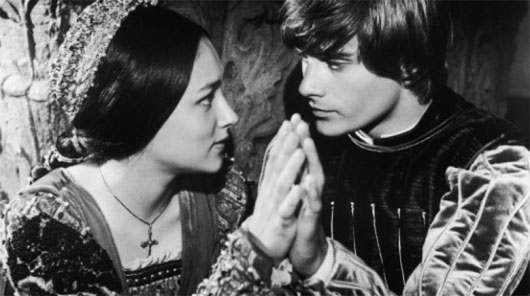The gene role in Romeo conflict - Juliet
Scientists strive to understand the cause behind the prolonged conflict between parents and their children around choosing a partner.
Before the story of Romeo and Juliet was popular, young couples living with their parents were often not agreed with by their births. Even in cultures where parents take absolute control over their children's fiancée / fiancée, parents - children can still be in conflict with their lovers. For scholars of evolution, this conflict is particularly impressive, as it can cause enemies to crumble to the extreme, and as in the case of Romeo and Juliet, the result is a tragic death for couples love each other, but it seems that the parties never take lessons. So why does this conflict persist throughout the history of mankind?

Romeo - Juliet is a sad love story based on the reality of parents' conflicts with their lovers - (Photo: schoolworkhelper.net)
When turning to research on computer models, experts at the University of Bristol (UK) and Groningen (Netherlands) said they finally got the answer, and genes can play a big role in the problem. This, according to the report on Evolution & Human Behavior.The evolutionary hypothesis suggests that parents and children always need support and care for their companions, so they strive to fight for this need. However, it is clear that parents want more than their children.
Co-researcher Tim Fawcett of Bristol University explained the computer model based on data that parents all love their children equally. So they want to distribute fair wealth to each child. For example, a daughter takes a rude husband, grumpy, unreliable, and the other child introduces a middle-aged parent to an investment calculation. The first child will need more time, money and affection to be able to survive, and the other will only receive a small portion from their parents.
Sharing wealth in this way can create a conflict, since a married child is less likely to support the parent, causing them to provide more resources for the child to qualify for birth. live, build a family and give birth to a child like a brother or sister to meet a more idealistic spouse. As for my part, the child kept falling in love with his lover, it is not necessary to think about other things because his parents had arranged the household. Besides, expert Robert Kurzban of the University of Pennsylvania (USA), did not participate in the study, adding a worth considering. The child can be naturally equipped with the ability to identify the right man, having good genes helps to have more children, despite the lack of other aspects.
In the study, girls who chose less-qualified husbands gave birth to more children than their sisters. Previous studies have shown that parents tend to favor their son-in-law with good social and family status, while girls place a heavy emphasis on appearance appeal , humor and even body odor. (which, according to the scientific world, helps people identify lovers with similar genes) when choosing a partner. Finally, all these features can help the child produce a new generation.
However, will the lovers overcome their parents' barriers to be happier? That's what the scientific world cannot know for sure. The message here is that when parents intervene in the marriage of their children, or when the children argue their parents in this matter, not only on personal feelings, but also because of the impact of the gene, according to to help the human race continue to proliferate.
- Two 8,000-year-old 'Romeo and Juliet' skeletons
- Discover fossil dinosaur couple
- Ancient antiquities of 'Romeo and Juliet' were discovered next to each other
- Robot-made robot playing 'ultra'
- Discover the gene that forms the fruit shape
- Genes have a major role in memory development
- Identify a gene that plays an important role in eye lens development
- New role of tiny RNA in plant growth
- Reject the role of FOXP2 gene in human language evolution
- 5 gene variants related to prostate cancer
- Find the gene that causes alcoholism
- Discovering genes related to depression
 Green tea cleans teeth better than mouthwash?
Green tea cleans teeth better than mouthwash? Death kiss: This is why you should not let anyone kiss your baby's lips
Death kiss: This is why you should not let anyone kiss your baby's lips What is salmonellosis?
What is salmonellosis? Caution should be exercised when using aloe vera through eating and drinking
Caution should be exercised when using aloe vera through eating and drinking